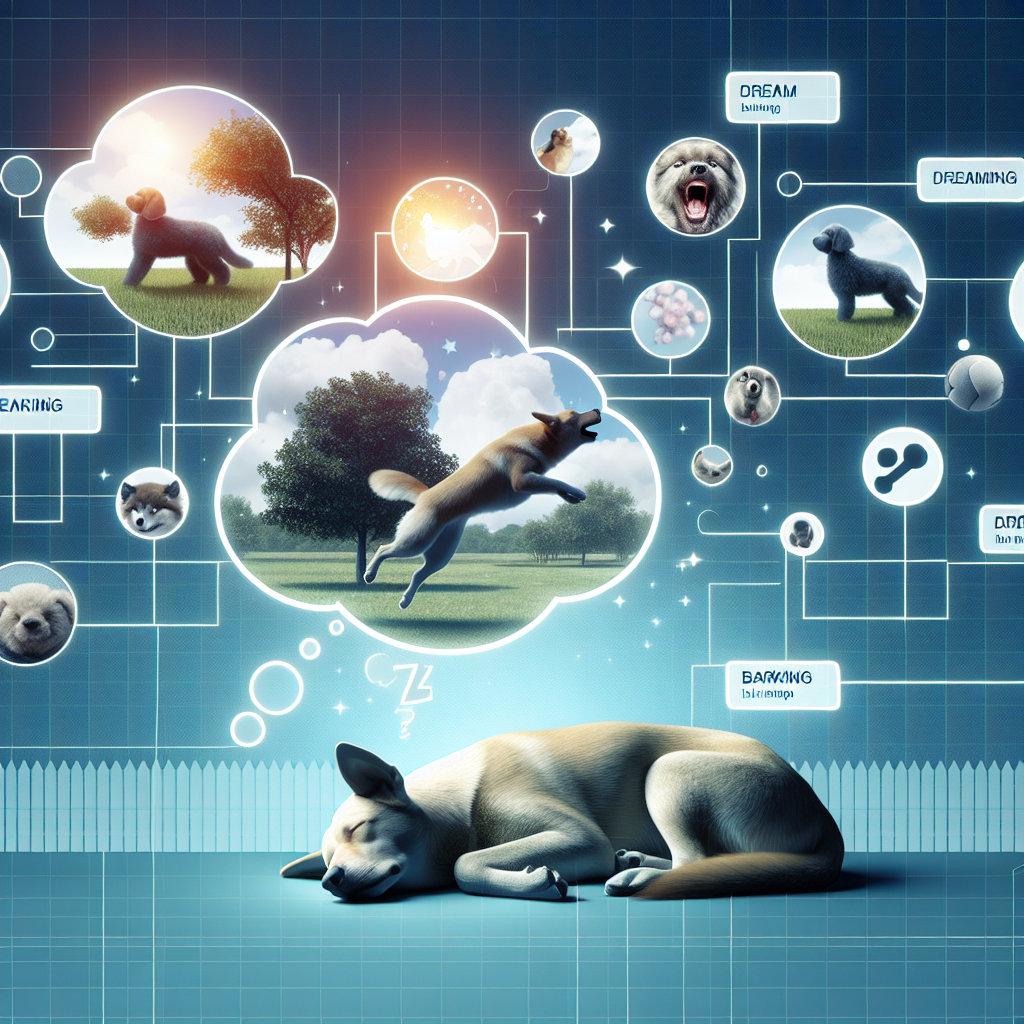===
Have you ever been jolted awake by the sound of your dog barking in his sleep? If so, you’re not alone. Understanding why your dog barks in his sleep can be a perplexing experience for many pet owners. This common yet often misunderstood behavior raises questions about what goes on in your furry friend’s mind during slumber. Is it a sign of distress, excitement, or something else entirely? Diving deep into the nuances of canine sleep barking, we unveil the layers of this behavior, offering insights that help demystify your dog’s nighttime vocalizations.
Analyzing the Reasons Behind Canine Sleep Barking
Canine sleep barking is a phenomenon that can stem from various underlying factors. Firstly, it’s essential to recognize that dogs, much like humans, experience different sleep cycles, including REM (Rapid Eye Movement) sleep, where most dreaming occurs. During this stage, brain activity increases, and your dog may vocalize as a reflection of dreams—playing, chasing, or interacting with other animals in their dream world. This is often a completely normal aspect of their sleep behavior, suggesting that they are engaged in vivid dream states.
Additionally, the breed of your dog can significantly influence sleeping habits and vocalizations. Breeds known for their vocal nature, such as Beagles, Dachshunds, and terriers, are more prone to barking in their sleep than quieter breeds. This is not merely a coincidence but a trait ingrained in their genetic makeup. Moreover, a dog’s age and health can come into play; puppies are often more vocal during sleep as they explore their dreams, while older dogs may bark due to discomfort or anxiety related to health issues, making it crucial to consider individual circumstances.
Lastly, environmental factors can also play a role in sleep barking. Loud noises, changes in household dynamics, or even the presence of other pets can disrupt a dog’s sleep and lead to barking. If your dog feels threatened or insecure, this could manifest during their dream state, causing them to vocalize. Understanding these triggers can provide insights into whether their nighttime barking is merely a quirk of personality or a response to external stressors.
Exploring the Behavior: What Your Dog’s Night Sounds Mean
When your dog barks at night, it can be tempting to assume the worst—that they are distressed or disturbed. However, interpreting these sounds requires a nuanced approach. Often, the context of the barking can reveal its meaning. For instance, if your dog’s barking is accompanied by rapid movements—such as twitching, paddling, or even growling—this can indicate they are in a deep sleep, possibly reliving an exciting interaction from their day.
On the other hand, if the barking appears frequent and is coupled with signs of distress, such as panting or whimpering, it may indicate anxiety or discomfort. This is often seen in dogs that have experienced trauma or stress in their lives, making it essential to monitor not just the barking but the overall vocalization patterns and accompanying behaviors. In such cases, seeking advice from a veterinarian or animal behaviorist could help to address the root causes of this nighttime anxiety.
Additionally, understanding your dog’s unique personality can provide valuable context. Some dogs are naturally more vocal and may bark in their sleep as an extension of their daytime personality. If your dog is typically playful and energetic, nighttime barking may simply be a reflection of their vibrant internal life as they engage in dream-like scenarios. Recognizing your dog’s individual characteristics can help you differentiate between normal behavior and something that may require further attention.
===
In conclusion, understanding why your dog barks in his sleep requires a blend of observation and knowledge of canine behavior. By analyzing the reasons behind this nighttime phenomenon, pet owners can gain deeper insights into their dog’s mental and emotional state. From breed tendencies to environmental influences, every factor contributes to the tapestry of your dog’s sleep life. Should you notice signs of distress or anxiety, be proactive in seeking guidance to ensure your furry friend enjoys peaceful slumber. Embrace this opportunity to learn more about your companion’s well-being, and consider sharing your experiences with fellow dog lovers to foster a community of understanding and support. Your dog’s dreams are as fascinating as their waking adventures—so keep exploring!
Measuring Your Dog’s Height: A Comprehensive GuideUnderstanding How Dogs Become Infested with FleasUnderstanding the Lifespan of Pug Dogs: What to ExpectRelevant LinkRelevant LinkRelevant Link
